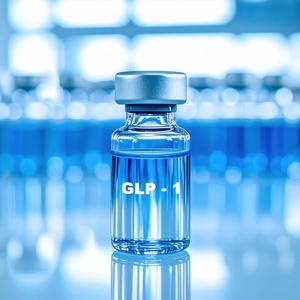The Effect of Recall on PMA Medical Device Preemption
Recalls (and manufacturers’ unwillingness to issue them) are frequently in the news these days. We are often asked to analyze the effect of a product recall upon claims and liability. It is apparent that a recall (or, perhaps, a refusal to conduct one) tends to lead to increased litigation. But does a recall result in increased liability? In the context of pre-market approved (“PMA”) medical devices, there is abundant authority that this is not and should not be the case.
Kansas follows the majority rule and does not impose any duty to recall or to retrofit products, including medical devices. The Kansas Supreme Court has clearly specified that “product recalls are properly the business of administrative agencies as suggested by the federal statutes that expressly delegate recall authority.” Patton v. Hutchinson Wil-Rich Mfg. Co., Inc., 253 Kan. 741, 763, 861 P.2d 1299, 1315 (1993). Accordingly, the Court must look to federal law in determining what effect, if any, a recall has upon the preemptive status of a medical device.
Recalls of medical devices are governed either by 21 C.F.R. §§ 7.40-7.59 (for voluntary field actions) or by 21 U.S.C. § 360h(e) and 21 C.F.R. §§ 810.10-810.18 (for recalls mandated by the FDA). Nothing in these regulations even remotely suggests that a recall under either set of regulations results in the withdrawal of a device’s PMA.
To the contrary, an entirely separate statutory and regulatory process governs withdrawal of approval. See 21 U.S.C. § 360e(e); 21 C.F.R. § 814.46. Moreover, and importantly, the standards for withdrawal of PMA are wholly distinct from those governing recalls. Cf. 21 U.S.C. § 360e(e)(1) with 21 C.F.R. §§ 7.40(a), 7.41(a), and 7.46(a). Furthermore, the provisions governing withdrawals of PMA require the FDA to give manufacturers notice and the opportunity to be heard. See 21 U.S.C. § 360e(e)(1) (withdrawal may be ordered only “after due notice and an opportunity for informal hearing”); 21 C.F.R. § 814.64(c) (same).
Where there has been a recall, even an FDA-mandated recall, of a PMA device, but the PMA status has not been revoked, the preemptive effect of PMA approval should still bar state law claims. See In re Medtronic, Inc. Sprint Fidelis Leads Products Liability Litigation, 592 F. Supp.2d 1147, 1155-56 (D. Minn. 2009), affirmed 623 F.3d 1200 (8th Cir. Oct 15, 2010); Talbott v. C.R. Bard, Inc., 63 F.3d 25, 28 (1st Cir. 1995) (preemption applies as long as the FDA has not revoked PMA).
The majority of courts have repeatedly dismissed state-law claims on preemption grounds in product-liability cases involving the recall of medical devices. Most notably, an MDL court dismissed all claims related to certain medical devices, concluding that the plaintiffs’ argument that a recall affects preemption is “predicated on the faulty assumption that the recall invalidated the [device’s] PMA.” In re Sprint Fidelis Leads, 592 F. Supp. at 1155; accord, Erickson v. Boston Scientific Corp., 2100 WL 7036060, slip op. (C.D. Cal. Dec. 12, 2011); Kinetic Co. v. Medtronic, Inc., 2011 U.S. Dist. Lexis 42398, slip op. (D. Minn. April 19, 2011); Mitaro v. Medtronic, Inc., 2009 WL 1272398, at *3 (N.Y. Sup. Apr. 9, 2009); Blanco v. Baxter Healthcare Corp., 70 Cal. Rptr.3d 566, 579-80 (Cal. App. 2008); Bausch v. Stryker Corp., 2008 WL 5157940, at *3 (N.D. Ill. Dec. 9, 2008); Baker v. St. Jude Medical, S.C., Inc., 178 S.W.3d 127 (Tex. App. 2005); Moore v. Sulzer Orthopedics, Inc., 337 F. Supp. 2d 1002 (N.D. Ohio 2004); Theofanis v. Boston Scientific Corp., 2003 WL 24049229, at *2 ¶16 (S.D. Ind. June 24, 2003); Steele v. DePuy Orthopedics, Inc., 295 F. Supp. 2d 439 (D.N.J. 2003).
In the Sprint Fidelis Leads litigation, the PMA-approved devices began to experience cracks in the outer sleeve of an electrical wire, subjecting some patients to inappropriate cardiac shocks. The manufacturer initiated a voluntary recall of the devices. In applying the law of Riegel to the facts of Sprint Fidelis, the court held the device’s PMA approval was not invalidated by the subsequent recall. 592 F. Supp. at 1155-56, 1162. No statutes or regulations support the notion that a recall, without more, is sufficient to void an approved PMA. Id. Further, the court emphasized that plaintiffs’ claims, if allowed to proceed, would interfere with the PMA process by “retroactive[ly] second-guessing” the FDA’s decision to approve the device in the first place. Id.
The proper focus in any products liability claim is on the date of manufacture and sale, not some later date. See Mays v. Ciba-Geigy Corp., 233 Kan. 38, 52, 661 P.2d 348 (1983). As noted in the Sprint Fidelis MDL, “Plaintiffs’ argument ignores that the PMA . . . was in place at the time the leads were implanted,” which “is what matters.” 592 F. Supp. 2d at 1156. Similarly, in Kemp v. Pfizer, Inc., the court noted that preemption applied despite a recall because, “when the [device] was implanted . . . it had received pre-market approval by the FDA.” 835 F. Supp. 1015, 1023 (E.D. Mich. 1993); accord, Blanco, 70 Cal. Rptr. 3d at 580-81.
Under Kansas law, compliance with regulatory standards renders a product presumptively non-defective. See K.S.A. § 60-3304. The majority rule is that a recall is neither an admission nor proof of FDA regulatory violations. Gross v. Stryker Corp., 2012 WL 876719 (W.D. Pa. March 14, 2012); accord, Horowitz v. Stryker Corp., 613 F. Supp.2d 271, 282 (E.D.N.Y. Feb. 20, 2009); In re Sprint Fidelis Leads, 592 F. Supp.2d at 1162.
Of those courts that would allow claims to proceed against the manufacturer of a PMA device based upon a recall, it is usually only where the FDA itself has found a violation of the conditions of approval for the PMA or a violation of the FDA’s good manufacturing practices. See Gelber v. Stryker Corp., 788 F. Supp. 2d 145 (S.D.N.Y. April 18, 2011) (relying upon FDA warning letter regarding manufacturing processes); Cornett v. Johnson & Johnson, 414 N.J. Super. 365, 998 A.2d 543 (N.J. Super. A.D. July 23, 2010) (FDA warning letter); Phillips v. Stryker Corp., 2010 WL 2270683 (E.D. Tenn. June 3, 2010) (recall was FDA-mandated, not voluntary).
While there are exceptions, there is a good body of case law that supports the continued preemptive effect of PMA approval even if a device has been recalled (indeed, even if the FDA has mandated such approval) where the pre-market approval is not withdrawn from the device. As always, please contact a licensed attorney regarding the law in your jurisdiction to evaluate the viability of recall-related claims.
related services

Weight Loss Wonders, Legal Woes: The Price of GLP-1 Popularity ...

AI-Enabled Medical Devices Here To Stay? ...
About Drug / Device Law Blog
Baker Sterchi's Drug / Device Law Blog examines topics and legal developments of interest to the drug and device industry. Learn more about the editors, Paul Penticuff and Megan Sterchi Lammert, and our Drug and Device practice.
Subscribe via email
Subscribe to rss feeds
RSS FeedsABOUT baker sterchi blogs
Baker Sterchi Cowden & Rice LLC (Baker Sterchi) publishes this website as a service to our clients, colleagues and others, for informational purposes only. These materials are not intended to create an attorney-client relationship, and are not a substitute for sound legal advice. You should not base any action or lack of action on any information included in our website, without first seeking appropriate legal or other professional advice. If you contact us through our website or via email, no attorney-client relationship is created, and no confidential information should be transmitted. Communication with Baker Sterchi by e-mail or other transmissions over the Internet may not be secure, and you should not send confidential electronic messages that are not adequately encrypted.
The hiring of an attorney is an important decision, which should not be based solely on information appearing on our website. To the extent our website has provided links to other Internet resources, those links are not under our control, and we are not responsible for their content. We do our best to provide you current, accurate information; however, we cannot guarantee that this information is the most current, correct or complete. In addition, you should not take this information as a promise or indication of future results.
Disclaimer
The Drug / Device Law Blog is made available by Baker Sterchi Cowden & Rice LLC for educational purposes only as well as to give you general information and a general understanding of the law, not to provide specific legal advice. Your use of this blog site alone creates no attorney client relationship between you and the firm.
Confidential information
Do not include confidential information in comments or other feedback or messages related to the Drug / Device Law Blog, as these are neither confidential nor secure methods of communicating with attorneys. The Drug / Device Law Blog should not be used as a substitute for competent legal advice from a licensed professional attorney in your state.














